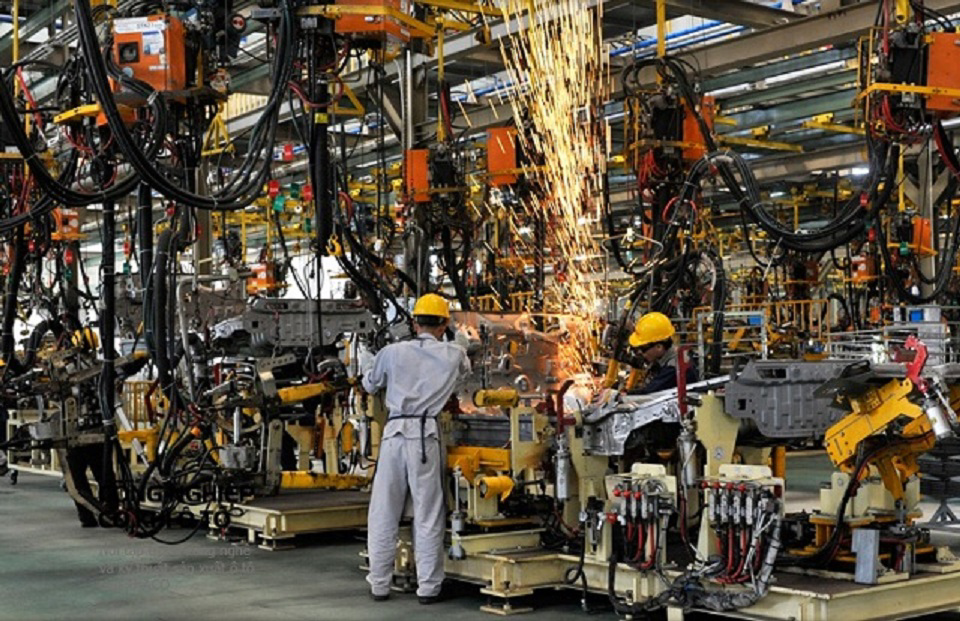
Should Vietnam prepare for Trump’s comeback? Part 1
Anti-dumping duties
Anti-dumping solutions were applied regularly during Trump’s first term. In 2018, the US Department of Commerce conducted 122 investigations and proposed anti-dumping and anti-subsidy duties on many import items. A report showed that the measures affected 31 countries and $12 billion worth of products imported to the US.
US previous administrations, both Democratic and Republican, have applied similar trade restriction measures.
In 1990, the Clinton administration ordered an investigation under Section 301 of the Trade Pact in order to impose tariffs on imports from Japan in an effort to stop the trade imbalance between the US and Japan and cope with intellectual property infringement.
In 2002, the Bush administration cited Section 201 to impose taxes on steel imports to the US to protect the domestic steel industry.
In 2009, the Obama administration imposed taxes on Chinese tires under Section 421, also aiming at protecting US manufacturers.
However, analysts believe that Trump, if he returns, will have a stronger and more comprehensive approach, targeting wider trade scale and setting higher taxes. And like the Biden administration, Trump will also cite concerns about national security as a reason to explain the imposition of trade barriers. And it is highly possible that Vietnam will be affected by the policies.
Preparations
To cope with the complicated geopolitical conditions in the next four years and ensure economic growth and stability, Vietnam needs to deploy a strategy on developing economy in many fields, including diversifying supply chains, enhancing regional trade relations, and promoting domestic production.
Economists believe that one of the most important steps is diversifying the supply chain and easing the overly heavy reliance on Chinese components. Vietnam can find new input material suppliers from other regional countries such as South Korea, Japan and India.
Though the countries remain uncompetitive with China in terms of production and transportation costs, the diversification of supply sources will help Vietnam mitigate risks and improve resilience to events in the international market, especially when it exports products to the US market.
Also, Vietnam needs to strengthen trade relations with other large economies such as India, ASEAN countries and China to ease the reliance on the US market and diversify export activities.
The expansion of dynamic and fast-growing economies in the region, including India, will bring potential cooperation and investment opportunities. India is predicted to become the second largest economy in Asia in the future, and the Act East policy being pursued by the Indian government will facilitate two-way trade cooperation.
Enhancing investment to develop domestic input material production is also an important strategy. The improvement of domestic production will help Vietnam build more independent industries and ease reliance on imports of components.
The current great efforts made by the government of Vietnam to attract FDI in hi-tech fields, including semiconductors, and to improve domestic laborers’ skills, show that Vietnam is on the right track to obtain its goals.
Vietnam’s position in region
Vietnam can learn from other Asian countries that success in good relations with Donald Trump personally can boost goals for national interest.
Japanese Prime Minister Shinzo Abe made friends with Trump during the transition between the 2016 election and in early 2017, and used Trump's call for security allies to share higher costs for national defence to promote the building of Japan's army. Former South Korean President Moon Jae-in used the relationship between Trump and Kim Jong-un as a springboard to pursue a strategy about North Korea.
However, Vietnam and other countries in Asia Pacific should anticipate that the staff Trump will employ in his second term may be different.
In his first term, Trump had many experienced policymakers who had once served Republican administrations. However, as described in books about White House’s operations under Trump’s reign, from Michael Wolff’s Fire and Fury to Jared Kushner’s ‘
Breaking History, the officials were replaced just after one or two years of working.
Vietnam should exploit its geopolitical advantages which always play an important role in negotiations with the US, and it should maintain the advantages no matter if Trump wins the election. Vietnam’s balanced and self-reliant political strategy will continue to serve as a trump card when negotiating with Washington, and encourage any US presidents to maintain and consolidate the comprehensive partnership between the two countries.
Pham Vu Thieu Quang